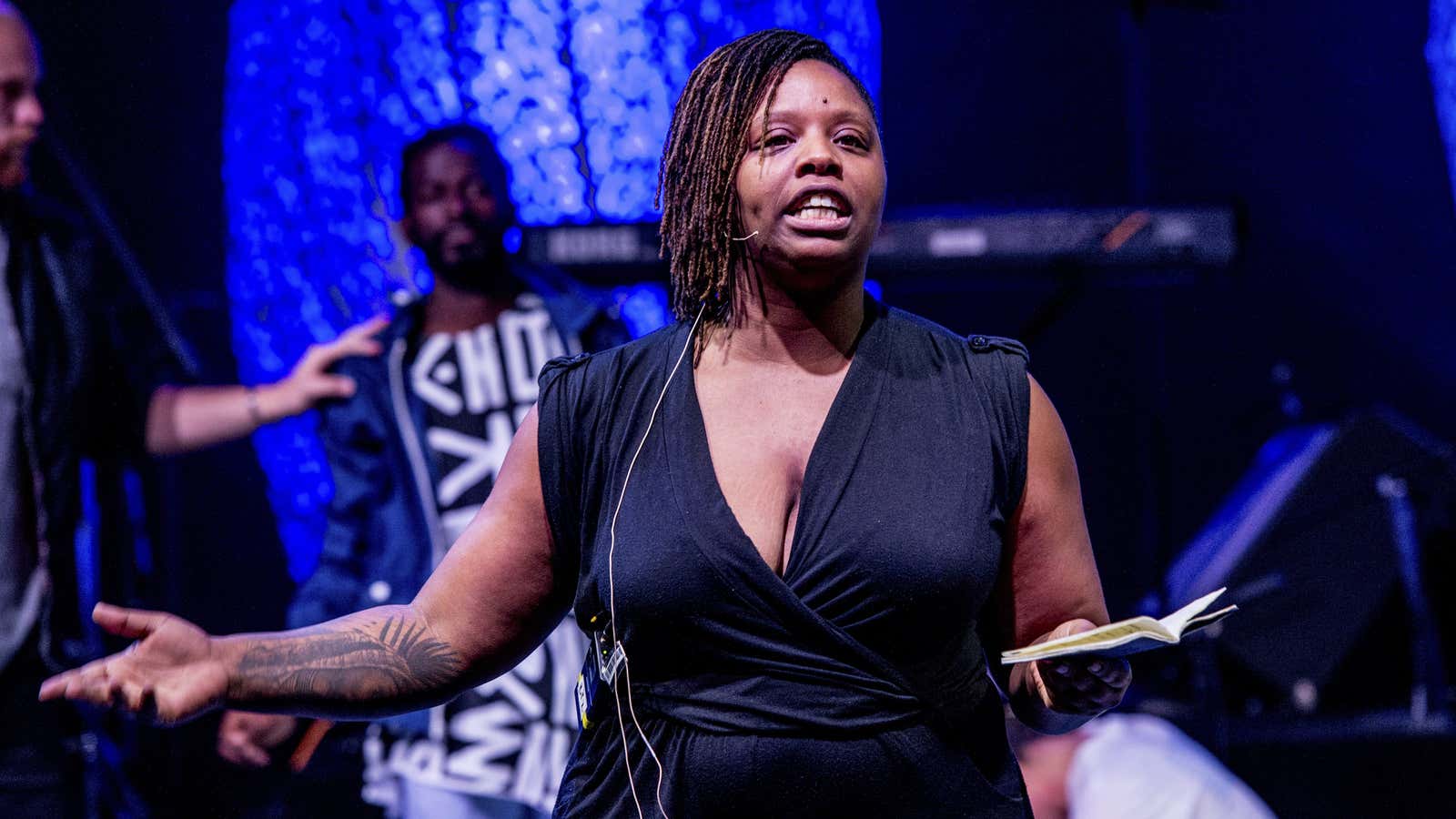Patrisse Cullors, co-founder of the Black Lives Matter movement, says she was “in shock, confused, mortified” when she realized Donald Trump would be the next president of the United States. President-elect Trump, who was endorsed by the KKK and once said a BLM protestor “should have been roughed up,” is a frightening leader for those campaigning to end police violence and create racial equality in the United States. But Black Lives Matter is carefully planning their response.
One major goal is to build “real political power” from the bottom up. Cullors wants to train 300 black leaders across the country to get on school boards, city councils, neighborhood councils, and “every branch of government.” It’s a plan that revolutionary black leaders have tried before, in the 1960s. “It’s a strategy that the Panthers began halfway through their movement,” says Cullors. “I think we need to do that.”
The Black Panthers were prepared to use violence in response to the oppression they faced. Is that another area in which BLM are considering following the Panthers’ work?
“There are several different tactics in our toolbox to fight for our autonomy and self determination. Our current work in this movement is a peaceful one,” she says. “I can’t speak for the movement but what I can say is I don’t condone the behavior of people who take up violent action as a way to have agency. Our current movement is non-violent.”
At a speech to tech conference Summit at Sea attendees last week, Cullors made called for action, mobilization, and organization. She said:
“This is not a game. We, and this generation have never ever experienced something like this. We have no idea what is about to come. If we don’t understand the state of emergency we’re in, you should not be a part of these discussions. This is not a time for just dialog.”
In addition to political power, Cullors says she’d like to see infrastructure and investment in black economies—businesses and communities that have the attention of hundreds of thousands of people, but are all too often underfunded. “I’m talking about building out new infrastructure that’s led, developed, incubated by black people,” she says.
Ahead of the Trump’s inaugural ceremony on Jan. 20, she says African Americans need to organize and decide on their requests for the first year. Those who want to be involved should get in touch with Black Lives Matters, start their own collectives, or join local organizers. A new presidency brings sweeping changes to the political landscape, and is a chance to reconsider what’s possible. “We need to imagine something very different. This is an opportunity to imagine a black future that we’ve never imagined before,” she says.
But the fight for racial equality is not the sole responsibility of African Americas. “The movement for black lives isn’t just about black people. Black liberation has never just been about black people. It’s been a bout a fight for our humanity, for our dignity,” says Cullors.
White people must also coordinate. After all, says Cullors, “It was white people who got Trump into office.” Those who want to promote racial equality must invest time in talking to and organizing those in rural, white, working class neighborhoods. Meanwhile, financial donations are also crucial. “There’s too much amazing work in the world that needs to be funded. White people with wealth need to be funding it,” she adds.
The Black Lives Matter movement began with a tweet in 2013, and is now a robust political organization with 42 chapters across the country. While fear is understandable for the movement’s members, Cullors sees the next four years as a time to actively advance racial equality. “There are going to be serious lows and serious highs in this work and if we’re committed to being a part of really transforming our society, sometimes shit’s going to be rough,” she adds. “We can feel sad, hurt, demoralized. But we can’t give up.”
